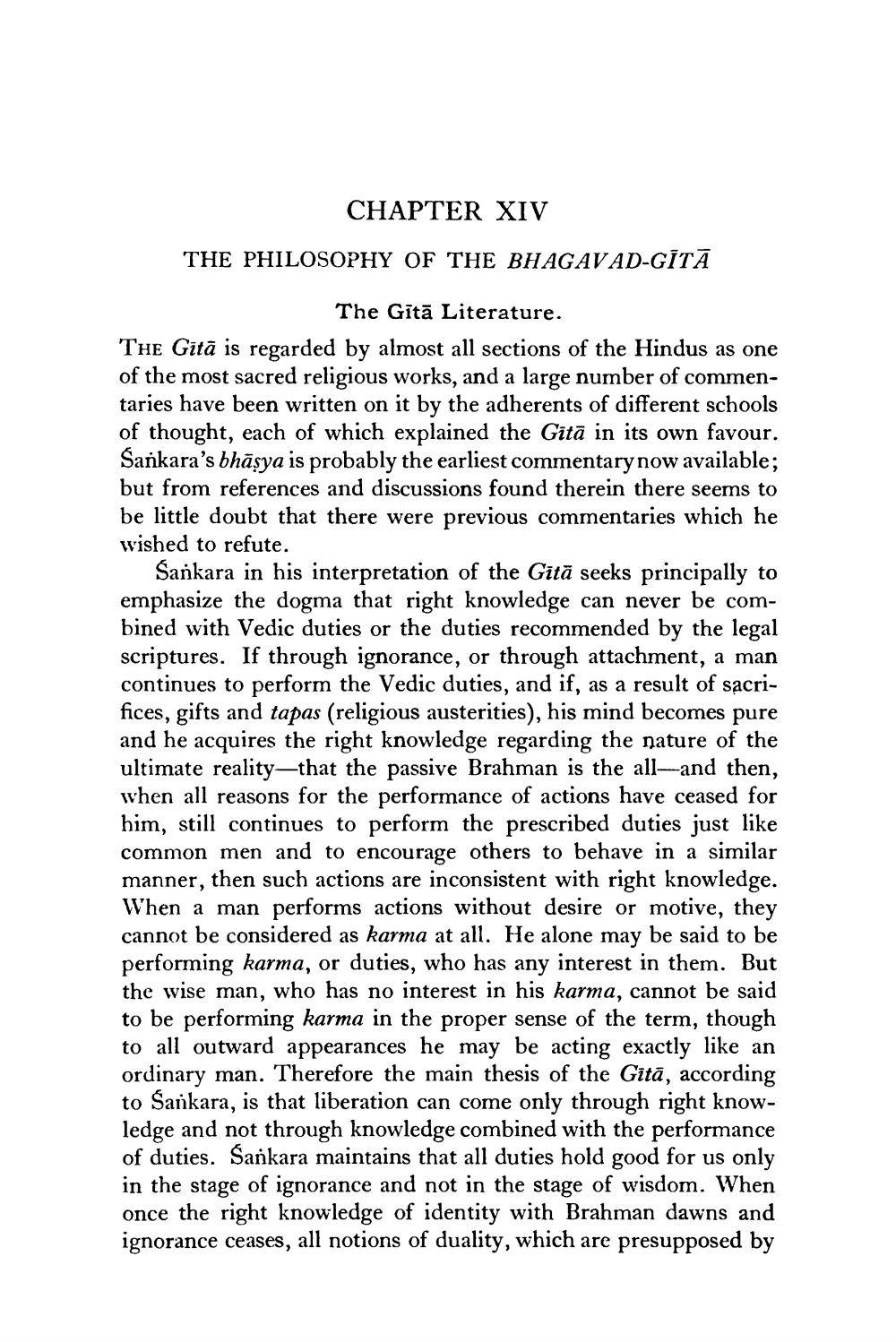________________
CHAPTER XIV THE PHILOSOPHY OF THE BHAGAVAD-GĪTĀ
The Gītā Literature. The Gītā is regarded by almost all sections of the Hindus as one of the most sacred religious works, and a large number of commentaries have been written on it by the adherents of different schools of thought, each of which explained the Gitā in its own favour. Sankara's bhāsya is probably the earliest commentary now available; but from references and discussions found therein there seems to be little doubt that there were previous commentaries which he wished to refute.
Sankara in his interpretation of the Gitā seeks principally to emphasize the dogma that right knowledge can never be combined with Vedic duties or the duties recommended by the legal scriptures. If through ignorance, or through attachment, a man continues to perform the Vedic duties, and if, as a result of sacrifices, gifts and tapas (religious austerities), his mind becomes pure and he acquires the right knowledge regarding the nature of the ultimate reality—that the passive Brahman is the all-and then, when all reasons for the performance of actions have ceased for him, still continues to perform the prescribed duties just like common men and to encourage others to behave in a similar manner, then such actions are inconsistent with right knowledge. When a man performs actions without desire or motive, they cannot be considered as karma at all. He alone may be said to be performing karma, or duties, who has any interest in them. But the wise man, who has no interest in his karma, cannot be said to be performing karma in the proper sense of the term, though to all outward appearances he may be acting exactly like an ordinary man. Therefore the main thesis of the Gītā, according to Sankara, is that liberation can come only through right knowledge and not through knowledge combined with the performance of duties. Sankara maintains that all duties hold good for us only in the stage of ignorance and not in the stage of wisdom. When once the right knowledge of identity with Brahman dawns and ignorance ceases, all notions of duality, which are presupposed by




